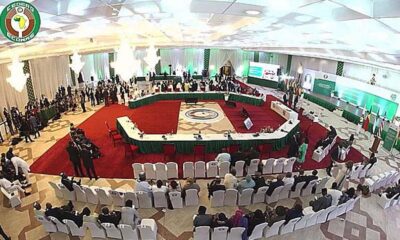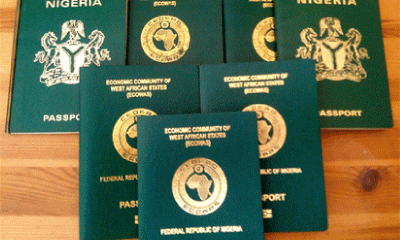Africa
Niger: We’re more likely to use force — ECOWAS
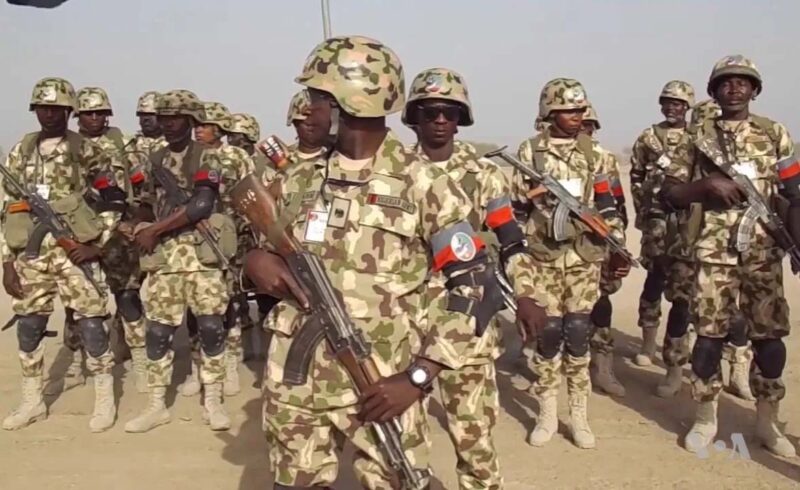
Niger: We’re more likely to use force — ECOWAS
The Economic Community of West African States has said it was more likely to use military force to restore constitutional order in Niger Republic.
This will be if the military junta, led by General Abdourahamane Tchiani, was bent on his three-year transition plan.
Fielding questions on Channels Television’s breakfast programme: “Sunrise Daily,” ECOWAS Commissioner for Political Affairs, Peace, and Security, Ambassador Abdel-Fatau Musah, also dismissed insinuations that ECOWAS was acting under the influence of a foreign power.
He explained that the community’s chances of using military force to restore constitutional order in Niger were very likely.
Musah said: “Right from the 1960s, I have never seen a coup that has not enjoyed continuous support from the people.
“The support can be engineered; you can rent crowds; that does not imply that people are unconcerned about their future.
“The high level of youth unemployment is a factor; mismanagement of our resources is a factor.
“But is the military a better sort of governance of our economy?
“Empirical data in our region never demonstrate that.
“So is that the right way to go about trying to change the system?
“A few years ago, you could not even talk of an incumbent president being defeated in an election.
“Since about 1992, we have seen alternations of power where sitting presidents were defeated and where ruling parties were defeated, whether in Ghana, Senegal, Nigeria, Sierra Leone, or even Liberia.
READ ALSO:
- Arsenal sink palace to extend perfect start despite Takehiro Tomiyasu red card
-
Teenage medical student allegedly assaults 3-year-old girl at a birthday party
-
Kaduna gov slashes tuition fees for state-owned institutions
“So there’s already progress.”
On the plan by ECOWAS to pragmatically restore peace to Niger after the crisis, he said: “What plans does the coup led by General Abdourahamane Tchiani have for the country?
“They are now embarking on a blind experiment, saying they are going to have a three-year transition, they are going to consult people, so they themselves came without a plan.
“Now that they have overthrown a democratically elected government, they are thinking about alternatives.
“We have seen that where coups have occurred, we have not seen any major alternative better to save the population the military claim to save in those countries.
“So before the coup, ECOWAS had identified the cascading terrorism moving from Burkina Faso to coastal countries as an existential trend that threatened the livelihood of West African citizens and was an impediment to economic development.
“Let’s first remove that obstacle and put in place a regional plan for governance, which is already there.
“So there are rules and engagement for developing the country through regional and economic integration and increasing intra- and West African trade.
“All these are there, but they take time to bear fruit, and the military is not an alternative.
“We are just talking about West Africa as if it were an island.
“All these challenges we are talking about are global.
“Even in most advanced countries, ordinary people are suffering, and they have not chosen to take part in overthrowing their governments.
“So why here?
READ ALSO:
-
BREAKING: Nigerian Army General dies while running during 2023 annual physical training test
-
Unilorin’s new students to resume in October, VC says
-
Tinubu to new ministers: We must hold each other responsible
“The inflation in the US, UK and other parts of Africa is not better than what we are seeing in West Africa today.
“In terms of ECOWAS reinstating constitutional order, it starts with consultation with all the active forces in the country, including political parties, the labour movement, and civil society organisations, they all have a say in it.
“So at the regional level, ECOWAS is already in the process of developing the economic and social council, which is the interface between civil society and policymaking in the region.
“The main driving slogan of ECOWAS is transforming the region from an ECOWAS of states, driven by the decisions of heads of state to an ECOWAS of the people.
“The process is ongoing.”
Asked on a scale of one to 10 how likely ECOWAS would deploy force in Niger, Ambassador Musah said: “Personally, my wish is that it should be at zero, but I think given the posture of the regime, I will put it at seven because if they continue to frustrate the non-violent proposal to reinstate constitutional order and then give an unacceptable timetable for return to constitutional order, they make the use of force more likely.
“At least, they have come forward to say they have an intention to return the country to constitutional order, but ECOWAS does not agree with the time frame, so even that agreement in principle is a move forward by the junta, but we will continue to consult to know the minimum, which would be the decisions by the authority of heads of state.”
READ ALSO:
-
Wike vows to demolish all illegal buildings in Abuja
-
Suicide Attempt: Okulaja shares his side of the story, reveals why he dumped Lagos socialite, Farida
-
Gunmen kidnap 8 corps members in Zamfara
Asked if ECOWAS was fixated on reinstating President Mohamed Bazoum, he said: “ECOWAS is asking for the release of Bazoum and his reinstatement.
“So we are calling on the junta to be reasonable because the three years they are talking about are nothing less than a provocation to the ECOWAS community.”
ECOWAS denies influence of ‘foreign power
Ambassador Musah also disproved claims of manipulation of external powers in its efforts to resolve the political instability in Niger Republic.
While noting that foreign support was not part of the consideration of the West African body, he said: “We’ve never discussed our plans with any foreign power, whether they are on the ground, they are in the air, they are in their countries – ECOWAS is taking an independent autonomous decision.”
He noted that ECOWAS had not given any consideration to the complexities of the nationals and multinationals who had given a foot on the ground.
Musah added: “I’m just coming from Accra where the chiefs of defence staff finalised their preparation for a potential military intervention in the country – foreign support was never part of the country at all.
“We are in with our contingent, own equipment, and our resources and we are not asking anybody for support, that is the position of ECOWAS.”
Vanguard News.
Africa
Niger coup leader sworn in as president for five years

Niger coup leader sworn in as president for five years
Niger’s military ruler Gen Abdourahamane Tchiani has been sworn in as the country’s president for a transitional period of five years.
Tchiani has led the country since 2023, after he deposed Niger’s elected president, Mohamed Bazoum.
On Wednesday, Tchiani took the presidential office under a new charter that replaces the West African country’s constitution.
He was also promoted to the highest military rank of army general in the country and signed a decree ordering that all political parties be dissolved.
During the ceremony in Niamey, Tchiani said of his new military rank, “I receive this distinction with great humility… I will strive to live up to the trust placed in me.”
The transition to democratic government is consistent with the recommendations of a commission formed following national deliberations.
The new charter states that this five-year timeframe is “flexible” based on the country’s security position.
READ ALSO:
- AI will replace doctors, teachers, others in 10 years – Bill Gates
- Senate seeks FG’s immediate intervention to slash data prices
- Reno Omokri: Nigeria gives more opportunities than US, Britain, Canada
Niger has been plagued by Islamist attacks for years, which was one of the reasons junta officials staged their coup.
The military takeover came after a number of others in the region; adjacent Mali, Guinea, and Burkina Faso are also ruled by dictatorships.
All four countries have split ties with erstwhile colonial power France, forming new alliances with Russia.
And all save Guinea have pulled out of ECOWAS, the West African regional group.
Niger’s relations with ECOWAS broke down when the junta demanded a three-year transition period to democratic governance directly after the coup.
Ecowas labelled this plot a “provocation” and vowed to interfere with force before eventually backing down.
Gen Tchiani’s regime is prosecuting former President Bazoum on charges of high treason and damaging national security.
Bazoum and his wife remain in the presidential palace, despite the fact that his son was granted provisional freedom in January.
According to state-run news agency ANP, Gen Tchiani stated that Niger’s new charter adheres to traditional constitutions while also implementing “unprecedented measures to protect our natural resources so that Nigeriens truly benefit from the exploitation of their wealth.”
Niger coup leader sworn in as president for five years
Africa
Fuel hits N8,000/litre in Niger, country seeks help from Nigeria
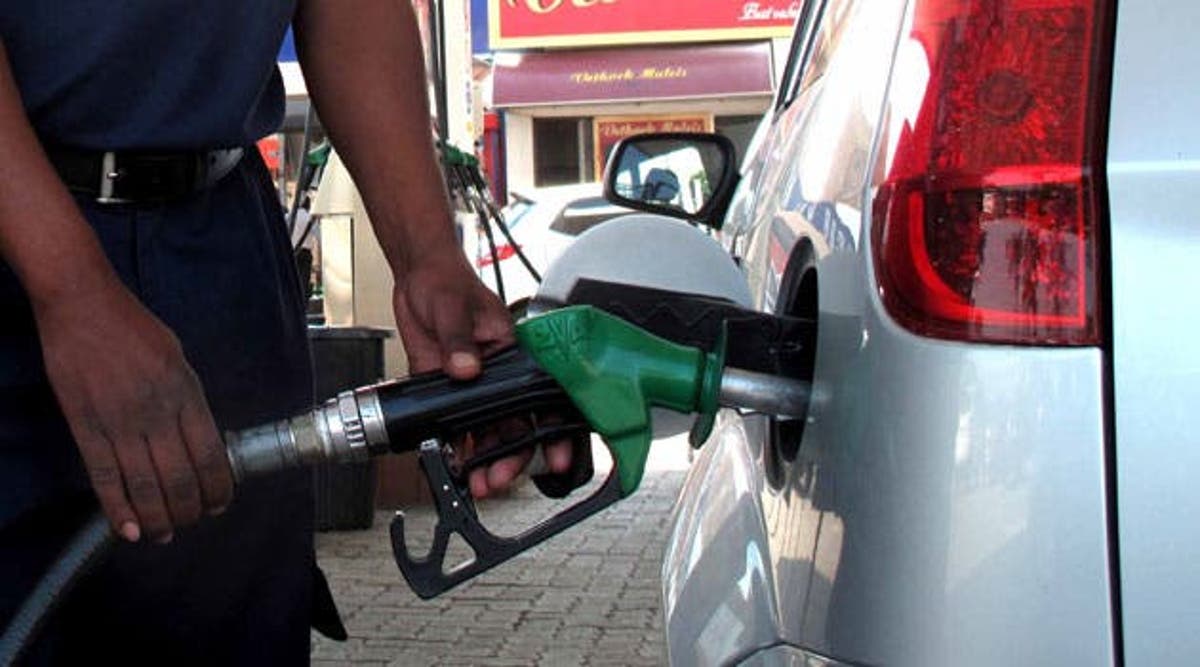
Fuel hits N8,000/litre in Niger, country seeks help from Nigeria
With the fuel crisis bedevilling the Republic of Niger, some of its military officials have visited Abuja to seek support from Nigeria to tackle the shortage of Premium Motor Spirit in the country.
It was gathered that the delegation successfully got the approval for 300 trucks of fuel from the Nigerian government.
Trouble started for Niger -which has been reliant on a Chinese refinery – after the refinery was shut down due to some misunderstanding with the supplier.
This led to Niger turning to Nigeria for help to ameliorate the fuel shortage experienced by the country.
READ ALSO:
- Kano govt clarifies appeal court ruling on Sanusi’s reinstatement as emir
- NAF strikes kill notorious bandit kingpins, 20 others in Zamfara
- Chelsea beat Man City to win Women’s League Cup
Officials from the Nigerian government noted that the deal was approved with the hope of using it as a bargaining tool with Niger.
“We do not want to blow our trumpet. Rather, we want to use it as a bargaining chip for negotiation, as we continue to engage with them to bring them back to ECOWAS.
“Let them get more from us. I am confident that gradually they will come back to ECOWAS because they do not have enough resources to import food to sustain their citizens,” the official said while pleading anonymity.
Sources stated that fuel prices in Niger were hitting N8,000 per litre
However, some transborder businessmen have attributed the fuel scarcity in Niger to the lingering relationship between the country and Nigeria.
They noted that in some cross-border towns to Niger, fuel is being sold for between 1,200 CFA and N3,500 (N2,500 and N8,500).
Fuel hits N8,000/litre in Niger, country seeks help from Nigeria
Africa
ECOWAS activates standby force against insurgency
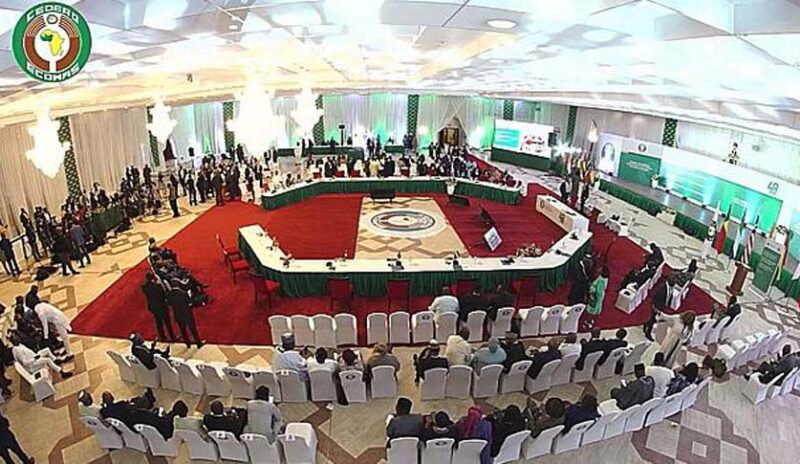
ECOWAS activates standby force against insurgency
The Economic Community of West African States (ECOWAS) has activated its Standby Force to curb terrorism and other transborder crimes in the subregion.
The Minister of Defence, Mohammed Badaru, who disclosed this in Abuja on Tuesday at the Forty-third ordinary meeting of ECOWAS Committee Chiefs of Defence Staff said the economic growth of the region is dependent on stable peace.
The minister added that there is a need for members of ECOWAS to close ranks against all forms of threats against the region.
On January 29, 2025, ECOWAS recognised the exit of three of its former members Burkina Faso, Mali, and Niger Republic upon the expiration of a one-year notice period.
READ ALSO:
- Supreme court dismisses appeal against Aiyedatiwa’s candidacy
- US set to present 30-day ceasefire offer to Russia
- BREAKING: House of Reps orders shutdown of porn websites nationwide
However, in “the spirit of regional solidarity”, ECOWAS asked its member countries to still recognise the national passports of the three exiting countries bearing the ECOWAS logo until further notice.
Their departure from the bloc has fractured the region and is leaving the ECOWAS grouping with an uncertain future.
The three junta-led countries formally notified ECOWAS of their plan for an “immediate” withdrawal in January 2024, citing the organisation’s excessive dependence on France in particular.
Paris has become the common enemy of the three juntas, which now favour partnerships with countries such as Russia, Turkey and Iran.
However, ECOWAS required one year’s notice for the departure to be effective — that deadline falls on January 29, 2025.
The three Sahelian countries have teamed up to form a separate confederation called the Alliance of Sahel States (AES).
ECOWAS activates standby force against insurgency
-

 Uncategorized19 hours ago
Uncategorized19 hours agoBreaking: Moon sighted in Saudi, UAE, others, Eid-Fitr holds Sunday
-

 metro3 days ago
metro3 days agoJUST-IN: Ex-Oyo gov Ajimobi’s first child Bisola dies At 42
-

 metro3 days ago
metro3 days agoFG declares public holidays for Eid-el-Fitr
-
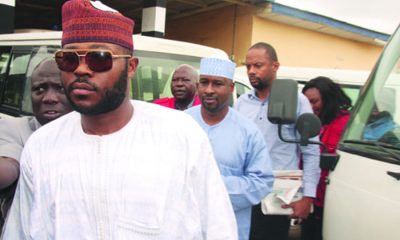
 metro2 days ago
metro2 days agoEFCC re-arraigns son of ex-PDP chairman for alleged N2.2bn oil subsidy fraud
-

 metro14 hours ago
metro14 hours agoRamadan ends in Nigeria, Sultan announces March 30 as Eid-el-Fitr
-
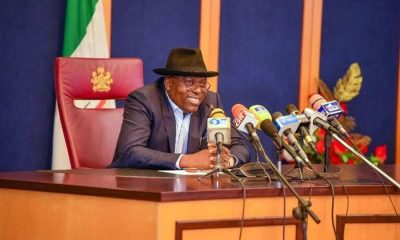
 metro1 day ago
metro1 day agoFubara reacts as Ex-HOS, Nwaeke accuses him of bombing oil pipelines, Rivers Assembly
-
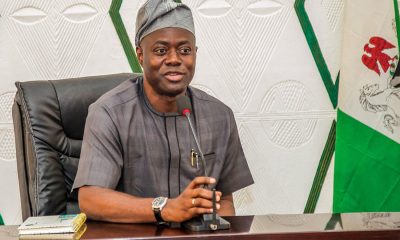
 metro2 days ago
metro2 days agoWe welcome Gov Makinde’s U-turn on Shari’ah panel – MURIC
-

 metro3 days ago
metro3 days agoINEC notifies Natasha, Senate of recall petition





